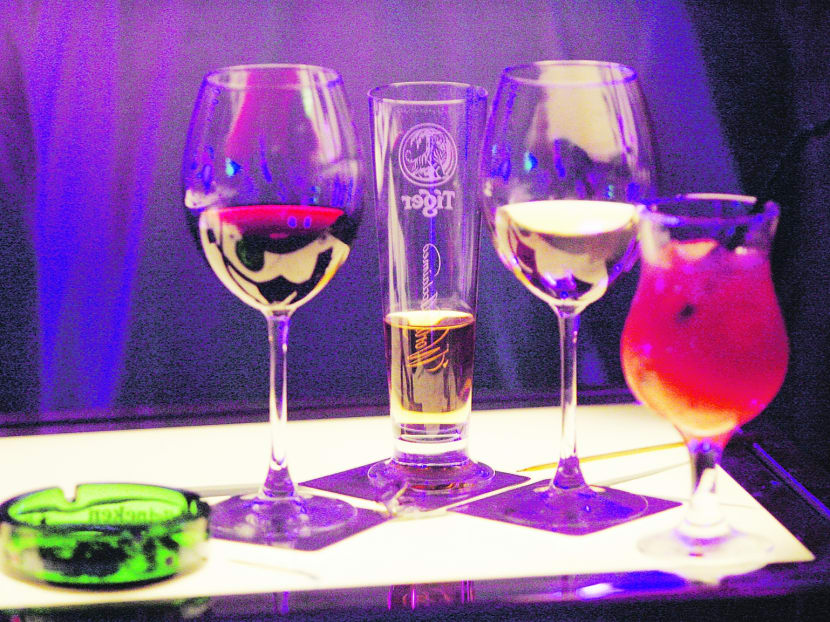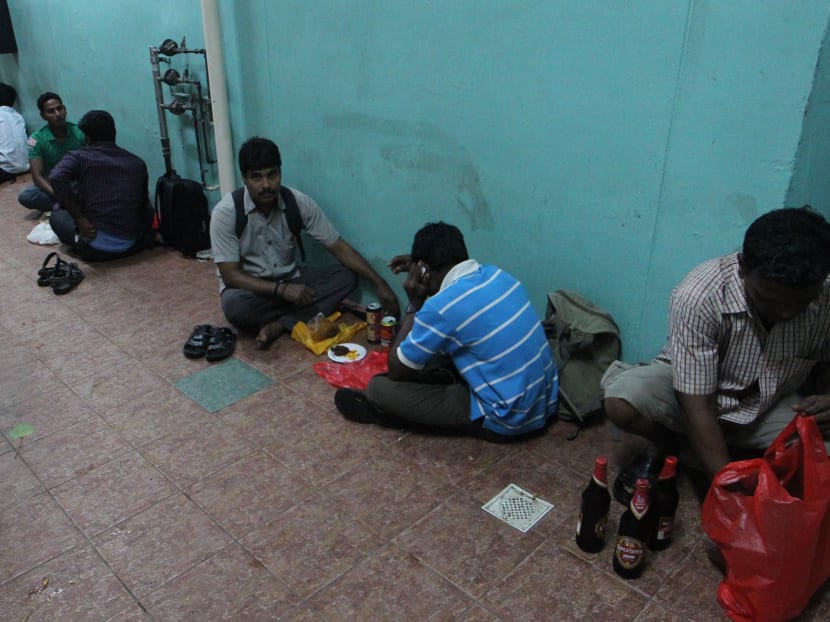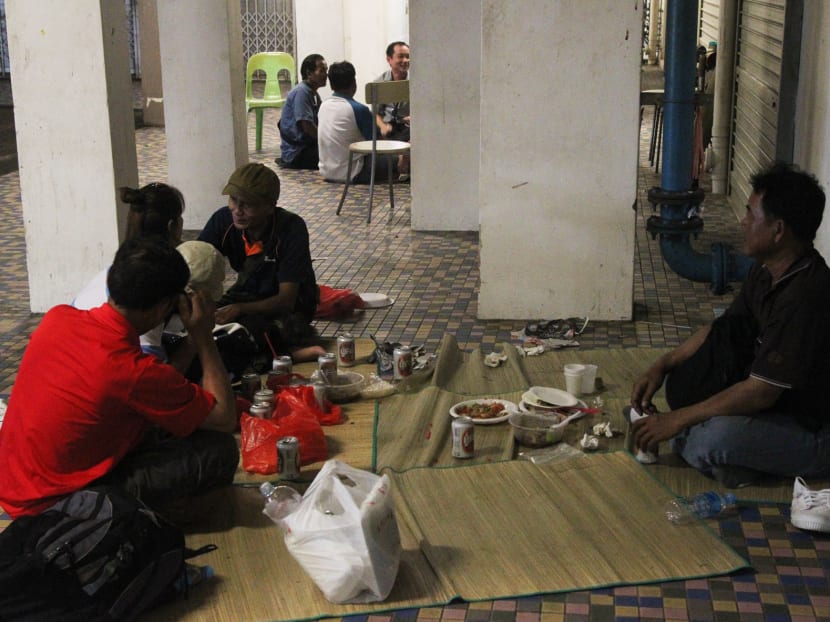Tighter rules on alcohol sale, drinking in the offing
SINGAPORE — The authorities are considering designating some public places as “no-alcohol zones” and shortening the sale hours of alcohol at retail outlets, to address a growing problem in the heartlands — the congregation of inebriated youths or foreign workers at common areas like void decks and parks, as well as places near pubs.



SINGAPORE — The authorities are considering designating some public places as “no-alcohol zones” and shortening the sale hours of alcohol at retail outlets, to address a growing problem in the heartlands — the congregation of inebriated youths or foreign workers at common areas like void decks and parks, as well as places near pubs.
These proposals were announced yesterday by the Ministry of Home Affairs (MHA) in a press release, as it began a five-week public consultation to tackle the problems of alcohol intoxication and public drinking in the long term. In particular, it is seeking to “reduce public nuisance and mitigate law and order concerns arising from liquor consumption” by groups at public places.
Noting that intoxicated drinkers “act violently, or create public nuisance such as littering and vomiting”, the MHA singled out the availability of cheap liquor at shops in the vicinity as contributing significantly to the problem. “For instance, young revellers are often seen congregating at public entertainment belts and drinking liquor purchased more cheaply from retail outlets, enjoying the atmosphere and attempting to achieve a level of intoxication before entering entertainment outlets,” it said.
The MHA is proposing designating some common areas — including void decks, parks, playgrounds and areas around MRT stations — as “permanent no-alcohol zones” where people are not allowed to consume or carry open bottles of liquor. This approach has been taken in jurisdictions such as Australia, Canada, the United States and the United Kingdom. In Sydney, for instance, local police officers have the power to confiscate and dispose of alcohol without first warning those in possession of the alcohol.
The MHA is also proposing to designate “problematic areas” — it cited the bridges at the Singapore River where groups of youth are typically seen drinking — as “temporary no-alcohol zones”. For these hot spots, the restriction may be removed when the situation improves.
Currently, retail outlets located in residential estates or commercial districts can apply for an extension to sell alcohol 24 hours a day. Those operating at mixed commercial and residential zones can apply to sell alcohol between 6am on weekdays and 3am the following day, or from 6am on Saturdays and the eve of public holidays till 4am the next day.
The MHA is asking the public to consider whether to retain the status quo, shorten the sale hours at all retail outlets or only those in “problematic areas”. The timings may be standardised or different in various areas.
Senior Minister of State (Education and Law) Indranee Rajah, who is also MP of Tanjong Pagar Group Representation Constituency (GRC), had mooted the idea of a no-alcohol zone in Robertson Quay in 2011. On the proposals, she said: “The root of the problem is the drinking in the public space around the river. The only effective solution would be to designate certain areas as no-alcohol zones.”
Producer Hanni Wong, 26, who goes to clubs in Clarke Quay every week, noted that young party-goers would gather to drink at the Jiak Kim Bridge at Robertson Quay, near the popular nightspot Zouk. “The people there litter ... it is disgusting. There is pee and vomit. Even before you cross the bridge, you can smell it,” she said.
Undergraduate Angeline Wong, 22, however, was sceptical of the effectiveness of shortening sale hours. “If people cannot buy alcohol after a certain hour, they can buy earlier,” she said.
On foreign workers congregating to drink at void decks in Housing and Development Board (HDB) blocks, Moulmein-Kallang GRC MP Denise Phua said the authorities’ “soft approaches” such as education and counselling were not working. “Effective behaviour management needs time. Many of these workers are transient ... We need foreign workers ... But we want to look after the interest of our residents as well,” she said.
Residents of the HDB blocks along Beach Road welcomed the proposals. Ms Annie Lee, 24, said that groups of foreign workers would congregate to drink under the blocks at night, after the Thai discos at the opposite Golden Mile Complex close at about 3am.
Madam Andi Murni, 55, recalled how the police had to be called in last year after a fight broke out among drunkards.
Provision-shop owners interviewed said business will be affected as many customers visit their shops to buy beer. A sales assistant argued that foreign workers do not create a nuisance. “This is where they meet their own people and gather. They drink and get drunk, but they mind their own business,” he said.
Similarly, pub operators elsewhere cited the potential impact on earnings. Still, they supported the proposals.
Ms Melody Chan, Marketing and Events Manager at f.Club Singapore in Clarke Quay, said: “(People) may switch from drinking in public places, to drinking in bars and clubs. On a less optimistic side, we lose the crowd.”
Singapore Nightlife Business Association President Dennis Foo noted that nightspots end up dealing with misbehaving patrons who had consumed “cheap alcohol” bought from convenience stores.
Zouk’s Head of Marketing & Events Timothy Chia said the measures, in particular the designation of no-alcohol zones, will help to make the areas around nightspots “more pleasant”.
Minister for National Development Khaw Boon Wan also posted on his Facebook page today (Nov 26) that the Government's proposal to ban alcohol in certain public spaces "is a good one." He added that HDB void decks have sometimes been abused by drinkers who go on to urinate in staircases, giving rise to complaints from residents.






